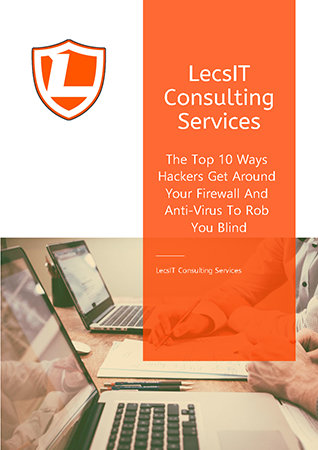
Imagine the perilous situation where all the effort, resources, and time you've dedicated to growing your business hang in the balance due to potential mishaps by your outsourced IT service provider or even your well-intentioned yet overstretched IT department. If you found yourself exposed to such risks, wouldn't you want someone to bring it to your attention?
This article serves as that much-needed wake-up call.
In recent years, the threats stemming from cybersecurity attacks have increased substantially. They no longer represent a remote possibility resulting in minor inconveniences. Businesses of all sizes and across various industries are falling victim to cyberattacks, incurring substantial financial losses ranging from hundreds of thousands to millions of dollars, alongside severe damage to their reputation and the erosion of customer trust. For some, it marks the end of their business, while for many others, it signifies a significant financial catastrophe with lasting repercussions on profits and revenue.
Despite these stark realities, too many CEOs and small business owners are still delegating crucial decisions regarding risk tolerance and compliance policies to their IT service providers or internal IT departments, when these decisions no longer belong in their purview.
Consider this scenario: you have an employee who consistently disregards stringent data security and password policies and routinely fails to grasp the importance of cybersecurity awareness training, thereby putting your company at risk of a cyberattack and compliance breaches. Should it be the responsibility of your IT manager or IT service provider to deal with this employee? Should they be reprimanded or even terminated? Is it even within the scope of their responsibilities to manage employee behavior concerning company data and devices? If your answer is yes, then when was the last time you sat down with them to specifically address this issue and provide guidance on how to handle it? Chances are, it's either never happened or was a very long time ago.
This is where the problem lies. Most CEOs would likely agree that making such decisions is not the IT department's role, yet many of these same CEOs leave these critical decisions entirely in the hands of their IT department or outsourced IT service provider, including choices about what is permissible, what isn't, and the level of risk tolerance.
What's even more concerning is that many CEOs are unaware that they SHOULD have these policies in place to safeguard their company from compromise or risk. Determining what should be allowed or prohibited is not necessarily the IT person's responsibility; it's your role as the CEO.
Consider another scenario: many companies have invested in cyber liability, ransomware, or crime insurance policies to offer financial protection in the event of a cyberattack and cover the substantial legal, IT, and related costs that follow such an incident. However, our experience shows that most insurance agents and brokers lack a deep understanding of the IT requirements necessary to secure such policies. Consequently, they fail to advise their clients to collaborate with their IT provider or internal IT team to ENSURE that the appropriate protocols are in place, risking the denial of coverage for non-compliance with policy requirements.
When a cyber event occurs, and a claim is denied, who bears the responsibility? Is it the fault of the insurance agent for not providing adequate warning? Is it the fault of the IT department or service provider for failing to implement protocols they were not informed about? Ultimately, the responsibility falls on you, the CEO. That's why it's crucial for you, as the CEO, to ensure that decisions that affect your organization's risk are well-informed and not left to chance.
Certainly, a proficient IT company will draw your attention to these issues and provide guidance. However, most are primarily focused on maintaining system functionality rather than advising clients on enterprise risk and legal compliance.
If you wish to ensure that your organization is genuinely prepared for and shielded against the aftermath of a cyberattack, we invite you to click here to arrange a private consultation with one of our advisors regarding your concerns. This service is free of charge and could provide you with invaluable insights.



